Have you ever wondered why some websites rank higher on search engines than others?
The answer often lies in effective technical search engine optimization (SEO) services. In this article, we’ll break down the essentials to help you understand how these services can improve your website’s performance and visibility.
By mastering the basics, you can ensure your website not only attracts more visitors but also provides a seamless user experience. Let’s dive in and demystify technical SEO services together!

What is Technical SEO?
Technical SEO refers to the process of optimizing a website’s infrastructure to enable search engines to crawl and index it more efficiently. This includes optimizing website speed, ensuring mobile-friendliness, and creating a clean URL structure. These elements help search engines understand and rank your content properly.
Another critical aspect of technical SEO is fixing broken links and addressing duplicate content issues. Implementing secure HTTPs and improving the site’s XML sitemap are also vital steps. Ensuring your website is free of crawl errors and has proper schema markup further boosts its technical health.
Understanding Search Engines and Their Algorithms
Search engines work in several steps, including searching, storing, and ranking. The first thing search engines do is send out tools called crawlers or spiders to look for new and changed information on the web. This content is saved and organized in an index after it has been crawled. Algorithms then use the index to rank pages based on quality and usefulness when people do searches. Search engines always have to work hard to understand and make sense of all the different kinds of information on the internet. To give the best search results, they need to tell the difference between good and bad material. To make sure they give correct and useful results, search engines also need to keep up with how people search and how language changes. Many changes have been made to search engines over the years so that they can give you more accurate and useful results. Simple phrase matching used to be enough for search engines, but now they use complicated algorithms and machine learning. As search technology has changed over time, semantic search has grown to focus on understanding the meaning behind search questions.
Key Technical SEO Services
Key technical SEO services are crucial for optimizing a website’s structure and performance, ensuring it meets search engine guidelines and provides an excellent user experience. Here are some essential technical SEO services:
Website Audits
Website audits are in-depth checks of the technical health of a website. They look at many things, like how fast the site loads, how the URLs are structured, and how mobile-friendly it is. These checks find problems that could make it harder for search engines to index pages and for users to find things. A website audit also looks for broken links and material that is already on the site. The secure HTTPS application and the correctness of the XML sitemap are checked. Part of the process is making sure the site doesn’t have any crawl mistakes and has the right schema code.
Crawlability and Indexability Optimization
The term “crawlability” describes how simple it is for search engine spiders to reach and use your website. Making sure that the robots.txt file on your site is set up properly is important for telling search engines which pages to crawl. Spiders can easily find and scan your website’s information if you use proper internal linking. Indexability tells you if search engines can add your pages to their index. This includes taking care of meta tags like “noindex,” which can stop search engines from indexing some pages. By fixing problems with similar content and using canonical tags, you can make sure that only the pages you want to be searched are shown.
Site Speed Optimization
Site speed optimization is important for both users and search engines. When websites load quickly, users stay on them longer and the return rate goes down. To make a site faster, you need to optimize pictures, use browser caching, and cut down on server reaction time. Content delivery networks (CDNs) can help your site load faster by sending your site’s information all over the world. You can also speed up load times by compressing files and making as few HTTP calls as possible. Testing and keeping an eye on your site’s speed on a regular basis will make sure it keeps working well and meets the latest standards.
Mobile Optimization
Mobile optimization makes sure that your website works well on phones and tablets. It includes making a pattern that changes based on the size and orientation of the screen. This makes it easier for mobile people to get to and use your site. Search engines give websites that are mobile-friendly higher results. Making sure your website works well on mobile devices can help it get more visitors. For a good user experience, mobile optimization also means making sure pages load quickly and are easy to navigate.
Structured Data Markup
Structured data markup is the process of adding specific code to your website to help search engines understand what it is about. This can improve how the information on your site is shown in search results, which can lead to rich snippets. Rich tidbits add extra information to search results, like prices, reviews, and event times. By using organized data, you can make your website more visible and get more people to click on it. It can also help search engines understand the content and background of your page better. Schemas, which are common forms accepted by search engines, are needed to use structured data markup.
HTTPS Implementation
Using HTTPS is a must if you want to keep your website safe. It encrypts the data that your site and its users send and receive, so private data can’t be read by other people. Because search engines like HTTPS-enabled websites, you need to make sure that your site has it if you want to improve its score. You need to get an SSL/TLS certificate from a reputable certificate provider in order to use HTTPS. After setting up the server, you should make sure it uses HTTPS and change any private links to make sure they are safe. To keep your link safe, you should check and update your SSL/TLS certificate on a regular basis.
URL Structure Optimization
URL structure optimization involves creating clear and descriptive URLs for your web pages. This helps search engines understand the content of your pages better. It also assists users in knowing what to expect when they click on a link.
Using keywords in your URL can improve your page’s visibility in search engine results. Keeping URLs short and avoiding unnecessary parameters enhances readability and indexing. Consistent URL structures across your website contribute to a clean and organized site architecture.
Canonicalization
Canonicalization involves setting a preferred version of a webpage when multiple versions exist. This helps search engines understand which version to index and display in search results. It prevents issues like duplicate content that can negatively impact your website’s ranking.
To implement canonicalization, you need to use canonical tags in the HTML of your webpages. These tags signal to search engines which version of the page you consider the master copy. Properly managing canonical tags ensures that your site’s authority and ranking signals are consolidated to the preferred page version.
XML Sitemap Creation and Optimization
An XML sitemap is a file that tells search engines about all of your website’s important pages. This makes it easier for them to find and crawl them. A sitemap creator tool automatically puts together a list of your website’s URLs when you use it to make an XML sitemap. Search engines will know how your site is structured if you send this sitemap to them through Google Search Console or Bing Webmaster Tools. To optimize an XML sitemap, you need to keep it up to date with any changes to your site, like new content, removed pages, or links that are no longer working. Making sure the index isn’t too big and follows search engine rules is very important for good performance. Adding information, such as the date that each URL was last changed, can help search engines figure out how relevant and up-to-date your content is.
Robots.txt Optimization
Setting up the robots.txt file to control how search engines crawl and process your website is part of robots.txt optimization. Search engine crawlers can read the robots.txt file to find out which pages or files they can and cannot access. Setting these rules up correctly helps you control search activity and keep your server from getting too busy. To get the most out of your robots.txt file, make sure it doesn’t stop important pages from being searched or crawled. You can also use the file to keep search engines from seeing information that isn’t relevant or is private. It is important to check and update your robots.txt file on a regular basis to make sure it works with the current layout and content plan of your website.
Best Practices for Technical SEO Services
Technical SEO involves optimizing a website’s infrastructure to ensure it meets the criteria for search engines to crawl and index the site efficiently. Here are some best practices and tips to enhance your technical SEO efforts:
Conduct Competitor Analysis
When you analyze competitors, you look at their websites to see what SEO tactics they use. This can help you figure out how to make your site’s basic SEO better. You can find new ways to improve your site’s speed by looking at its structure, content, and how well it works. Looking at how your rivals use keywords and build backlinks can teach you a lot. Another way to find out how your site compares is to look at how well it works on mobile devices and how fast it loads. By gathering and studying this information, you can improve your SEO tactics so they work better.
Enhanced User Experience
Improving the user experience is important if you want to keep website visitors interested and happy. It includes making changes to things like site navigation, content layout, and page opening times so that users can interact with the site easily. Elements of design that are clear and easy to understand help users find information quickly and easily. Making designs that work well on mobile devices is also an important part of improving the user experience. By regularly changing your site based on user comments and performance data, you can make sure that it keeps getting better and more relevant.
Enhance Site Architecture
Enhancing site architecture involves organizing your website’s structure so that it is logical and easy to navigate. A well-structured site helps both users and search engines find content more efficiently. This can lead to improved user experience and better search engine rankings.
Simplifying the navigation menu and using descriptive labels can make it easier for visitors to locate what they need. Clear site architecture also ensures that search engines can crawl all important pages effectively.
Secure Your Site
Securing your site is essential for protecting your website and its visitors from potential threats. This involves implementing HTTPS to encrypt data and safeguard sensitive information during transmission. Regularly updating software and plugins helps prevent vulnerabilities that could be exploited by malicious actors.
Additionally, using strong passwords and two-factor authentication enhances security. Implementing a web application firewall (WAF) can offer another layer of protection against attacks.

The Role of Technical SEO in Digital Marketing
Technical SEO is essential for the success of any digital marketing strategy. It helps search engines properly crawl, index, and rank your website. This ensures that your content reaches the right audience and improves your online visibility.
Proper technical SEO can lead to better user experiences by ensuring faster load times and SEO optimization. It also aids in structuring data to make your content more accessible. Visit https://www.grizzlymarketing.com for more on digital marketing.
Elevate Your Online Presence Through Expert Technical SEO Services
In conclusion, technical SEO services play a crucial role in enhancing your website’s performance and visibility. By focusing on aspects like site speed, mobile optimization, and secure connections, you can provide a better user experience and improve search engine rankings.
Properly implemented technical SEO ensures that search engines can effectively crawl and index your site, helping your content reach a broader audience. Investing in these SEO strategies is essential for maintaining a competitive edge in the digital landscape.
Did you learn something new from this article? If so, be sure to check out our blog for more educational content.





